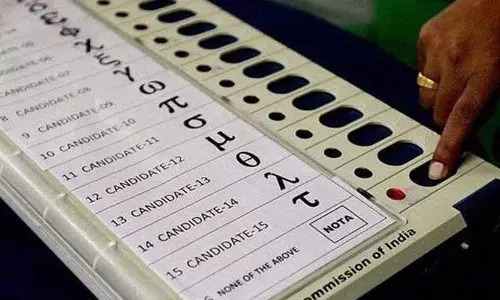
With the advent of online education
text_fieldsWe are entering a new academic year when the lockdown introduced for prevention of Covid has not been fully withdrawn. As the country goes through a new phase in the number of Covid cases, there is no reason to hope for an early and full exit from lockdown. The widely shared feeling is that we have to get into a practical mode of living with the virus. This thought originates from the realisation that neither the society nor the economy can hold on for long, with a full lockdown in force. Therefore, the crystallising concept is of easing the lockdown restrictions and at the same time moving forward with precautionary measures against the spread of the virus. Together with this, as the new academic front approaches, deliberations are also getting intensified about how to proceed in the education front; and the foremost among the ideas on this is that of online education.
Even before Covid and lockdown, online education has been in existence in the academic world. With the popularisation of the smart phone, countries and agencies that tap the possibilities of the new gadget came to the picture as marked by the very concept of Mobile learning (M-learning). And it is not a question to be dismissed why students should go to school carrying kilograms-heavy load of books and bags, and whether it is not enough to share their lessons and notes via their tabs or smartphones. It is possible to take the students to the diverse domains of knowledge under the supervision of an effective teacher. But note that when M-learning was progressing in different countries of the world, our society was still debating the question whether school students could be given a mobile phone. Such anxieties arise from the mind-set of viewing any new technology with suspicion.
Covid and lockdown has altered many conventional methods and habits, and that would be felt in the educational sector too. And it is as a part of that the education department is seriously deliberating on online education and proposing required plans. Both public instruction and higher education departments have put forward several ideas and schemes related to it. What the administrators, the teaching community, students and parents should do is to come forward to implement them in a time-bound manner and make them a success. If it happens so, even after the end of lockdown, many methods that could add value to the field of education can be adopted.
When there is a switch to new learning methods, it demands a system of the right training to them and means to convert their awareness in accordance with that. Otherwise it is bound to end up as a farce. Over the last few years, through agencies like KITE and IT@School Project, schemes and courses have been conducted extensively for imparting training and vision to the teachers. The challenge before them was how digital techniques could be employed in a manner sufficient to lead the students to the goals set in the cirruculum and textbooks. Although they cannot be said to have achieved the targets fully, much headway has been made. This model could well be replicated in the higher education sector too.
Online education cannot be seen as a panecea for everything, but at the same time it offers immense possibilities. Covid has provided an opportunity to use that possibility in the right manner. However, there is another aspect to be viewed seriously, i.e. when we get into online education mode, what percentage of students are able to enter that door? A survey report that 30 % of students in arts and science colleges of Kerala do not have access to the required technological facilities, has come out from the department of collegiate education itself. According to statistics collected through BRC's by public education directorate, 5.98 per cent students do not have access to such technological infrastructure. Since these are not scientific surveys, the percentage is likely to be higher. That is to say, when we launch into online education, the government has the obligation to ensure that the required facilities are accessible to the entire student community.























